Financial resiliency is one of those things that requires focus on the day to day money challenges as well as the ability to step outside of the frame to see the whole picture. If we don’t do this, we get stuck with the day to day and struggle to figure out the best way forward.
I feel very grateful to have interviewed Kathryn Meisner. She is a career and salary negotiation coach. She has worked with 500+ people. This helps her constantly step out of the day-to-day and see the whole picture. It helps her see what employers are looking for, what language they are using, how they make hiring decisions, what they are paying for what level of work and how to best negotiate. It also helps her see what employees are struggling with, what works and what does not. I can instantly see the value of having Kathryn, her strategic approach and macro level insights in your corner.
I learned 3 foundational yet game changing insights from my discussion with Kathryn.
1. We can accelerate successes by creating momentum and we can accelerate momentum through focus: Although this seems intuitive, we often forget that we can harness and work with our momentum. Kathryn talked about how her process is designed to move people forward. One of her clients’ first action items - when commitment and momentum is highest - is to complete a detailed questionnaire. Participants then draw upon that content throughout the rest of their career exploration and job search journey. She also describes how a lot of her work is helping participants create momentum by establishing gates for decision making. Often times, the information gathering process can lead to analysis paralysis. Kathryn helps participants focus on what they need to make the decision and move forward. Some strategies that we can use to create momentum if we can’t work with Kathryn include:
Setting up deadlines & accountability. For example, let a friend know that you are working on a career pivot, you would value their feedback on your approach and would like to set up a coffee date to go over it. This forces you to be ready by the coffee date.
Bounding the amount of research before a decision. For example; I will look at the pay of 10 jobs in the field I am interested in and speak to 5 people about how they negotiated their salary. Once I do this, I will set my target salary.
2. We can accelerate our success by being clear on what we want. This means that getting to our goals, be it a new job, a higher salary, a role that uses specific skills or a family friendly culture requires clarity on the specifics. Kathryn compared this to apartment / house hunting. You need enough specifics to enable selection. So, in the case of an apartment, you may need a budget, desired location and amenities. In the case of a career change, you need to deeply understand what keeps you feeling engaged and fulfilled in addition to your salary needs. Everyone is different. Some people really want to use specific skills, others have a certain impact, others want to work with a certain group of people or earn a certain amount. Clarity on what you want helps you avoid spending a lot of time going in circles or even worse selecting something that doesn’t work, meaning you can avoid going through the process all over again.
3. We can accelerate success by re-thinking and re-framing our experience and approaches. Kathryn works with many clients who have non-linear career paths or struggle to demonstrate the value of their work. Employers often look to job titles, resumes and relationships for signs of value. This puts those with a certain level of privilege at an advantage. Kathryn strategically points out that by understanding the system, you can work it to your advantage. First, knowing the desired skills of a role enables you to think about how you have demonstrated these. You may not have been a Project Management Director, but you could have been project managing a household, volunteering, or working multiple jobs through school. Or you may not have had direct reports but you have been managing stakeholders to move projects forward from multiple departments and that may have included ensuring recognition and capacity building - skills associated with people management.
Overall, there is often an opportunity to step back and re-think our approaches. We frequently start things by doing what we know. So, when looking for a job, we may update our resume and look for postings. The truth is that we are seeing fast paced change and new approaches that can be much more effective. Kathryn’s approach is all about engagement, coffee chats, informational interviews. It is exploration and gathering information while building relationships and connections with those in a space you want to enter. It is in essence research in parallel with targeted marketing. Re-thinking our approach can lead to better and faster wins.
Overall, I want to thank Kathryn for her very helpful insights. She recognizes the privilege associated with career navigation and the emotional, human and financial resources required to transition. She openly shared her perspectives for those who cannot afford to have her directly in their corner. She has also created some great free resources including an email course to help you figure out your next step, a job search checklist and a salary negotiation guide for women. For those that can, I certainly see the value of her coaching work. She has set up a valuable ecosystem to support an accelerate success. And she deeply cares about the success of her clients.

